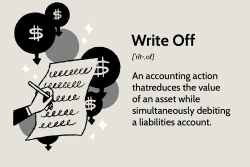Investment Property: How Much Can You Write Off on Your Taxes?
Read latest blogs and articles from Housystan

The Information mentioned here was last updated on:
29/1/2026Owning an investment property can be a powerful way to build wealth in the long term, especially in popular real estate markets such as Austin, Texas, or San Diego, California. However, understanding how much you can write off on your taxes is crucial for maximizing profitability and ensuring compliance with federal and state regulations. By leveraging tax deductions, property investors in cities like Seattle, Orlando, or Dallas can significantly reduce their taxable income each year. Let’s explore the key tax write-offs available for investment properties and how you can benefit, no matter where your rental property is located in the United States.
One of the primary benefits for property owners is the ability to claim mortgage interest deductions. If your property is financed, the interest paid on your loan is typically tax-deductible. This is especially helpful for investors in high-value markets like Los Angeles or New York City, where mortgage payments can be substantial. Additionally, property taxes paid to local governments are deductible, further lowering your annual tax bill.
Depreciation is another significant tax advantage for property investors. The IRS allows you to depreciate the value of your investment property (excluding land) over 27.5 years for residential real estate. This non-cash deduction can provide thousands of dollars in tax savings each year, making it a powerful tool for investors from Miami to Denver.
- Verified Tenants/Buyers
- Unlimited Property Listing
- Zero subscription/charges fee
Don’t overlook deductible expenses such as repairs, maintenance, and improvements. Costs for fixing a leaky roof, painting, or upgrading appliances are generally tax-deductible in the year incurred. Property management fees, legal services, travel expenses related to property oversight, and even advertising for new tenants can also be written off, whether your rental is in a bustling city like Chicago or a quieter suburb.
Lastly, keep accurate records and consult with a local tax professional familiar with your state’s specific laws. Maximizing your tax deductions can make a significant difference in your investment returns, helping you thrive in any real estate market across the United States. By staying informed and organized, you can ensure you’re making the most of every possible write-off for your investment property.